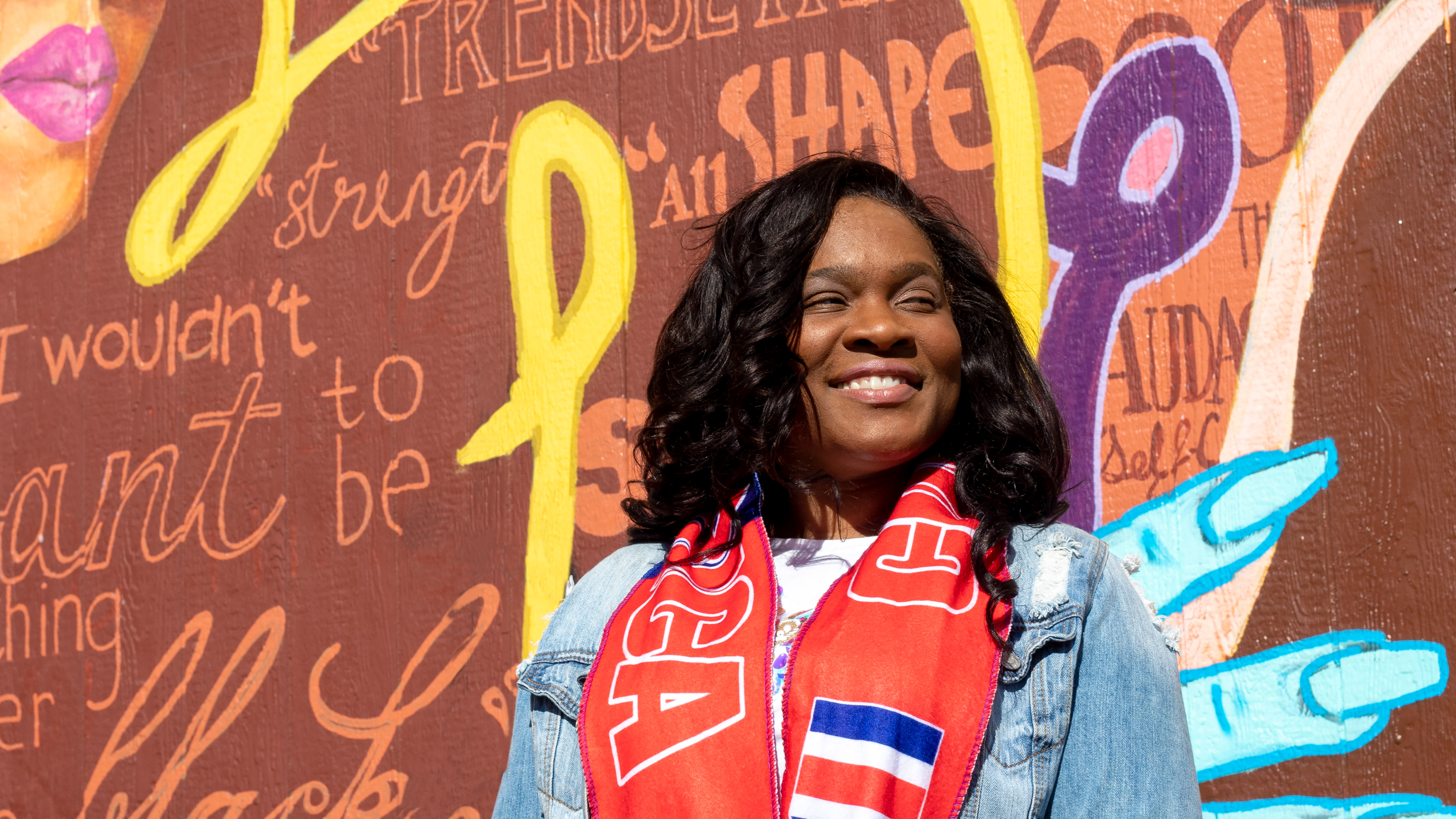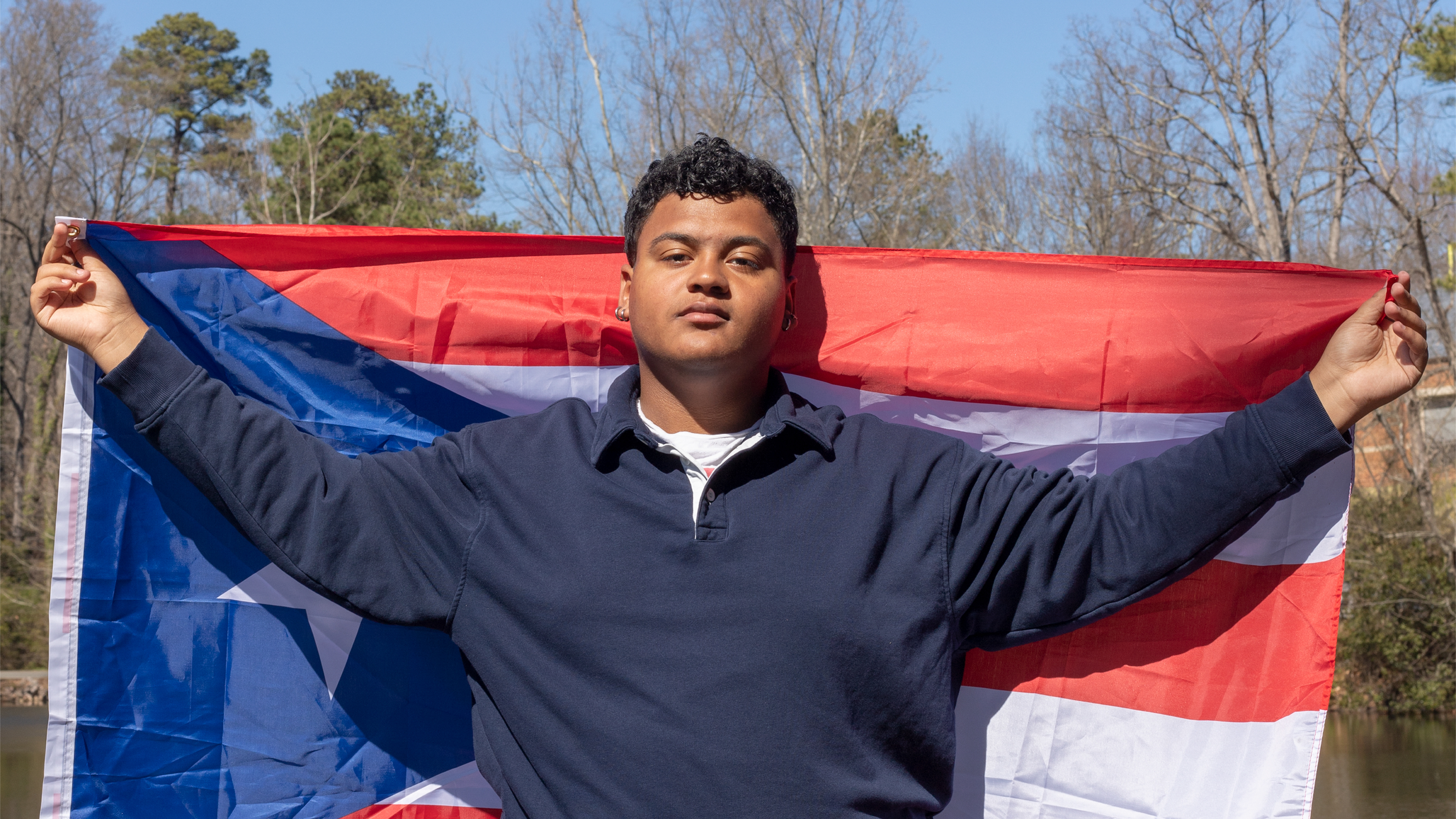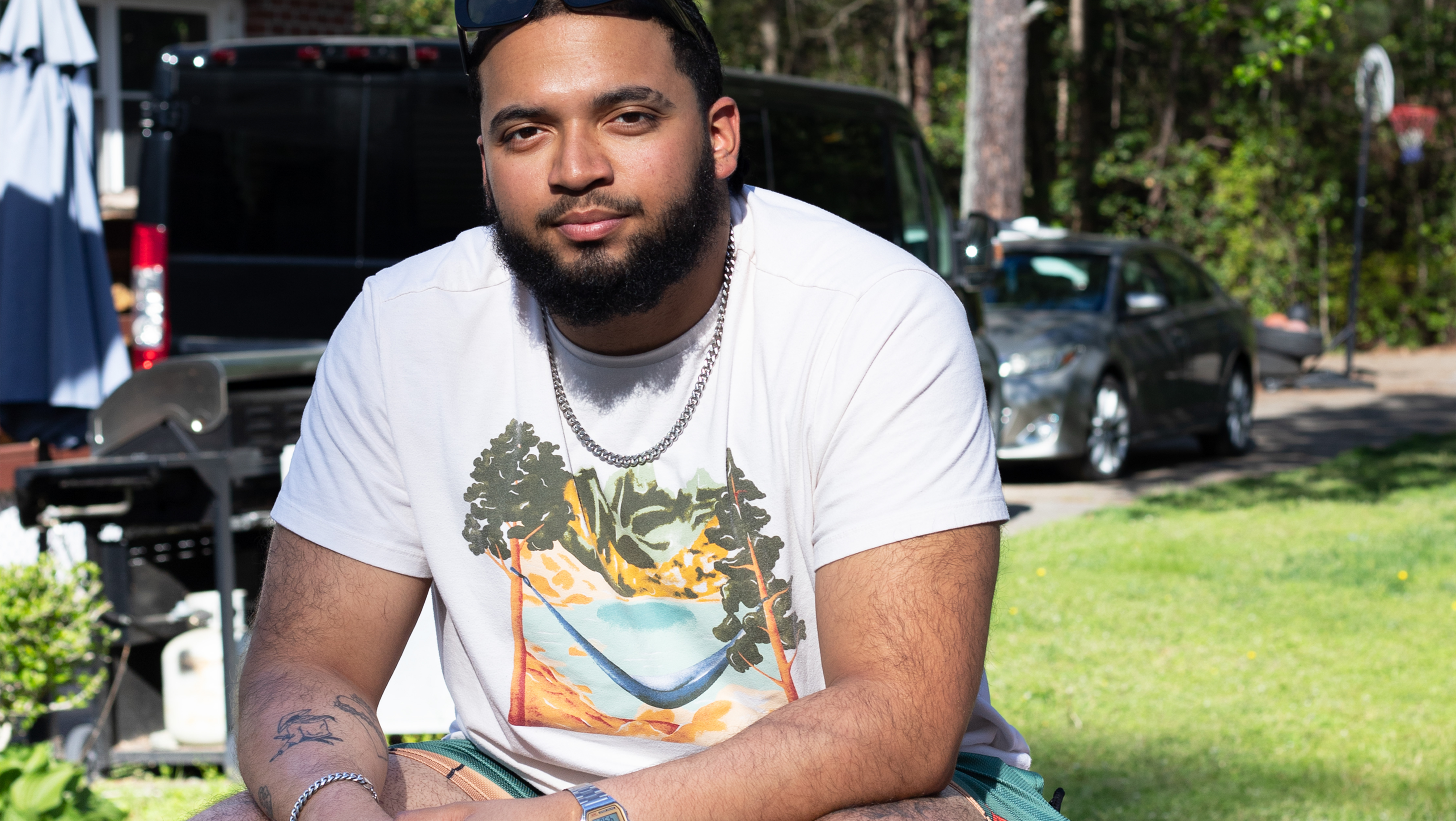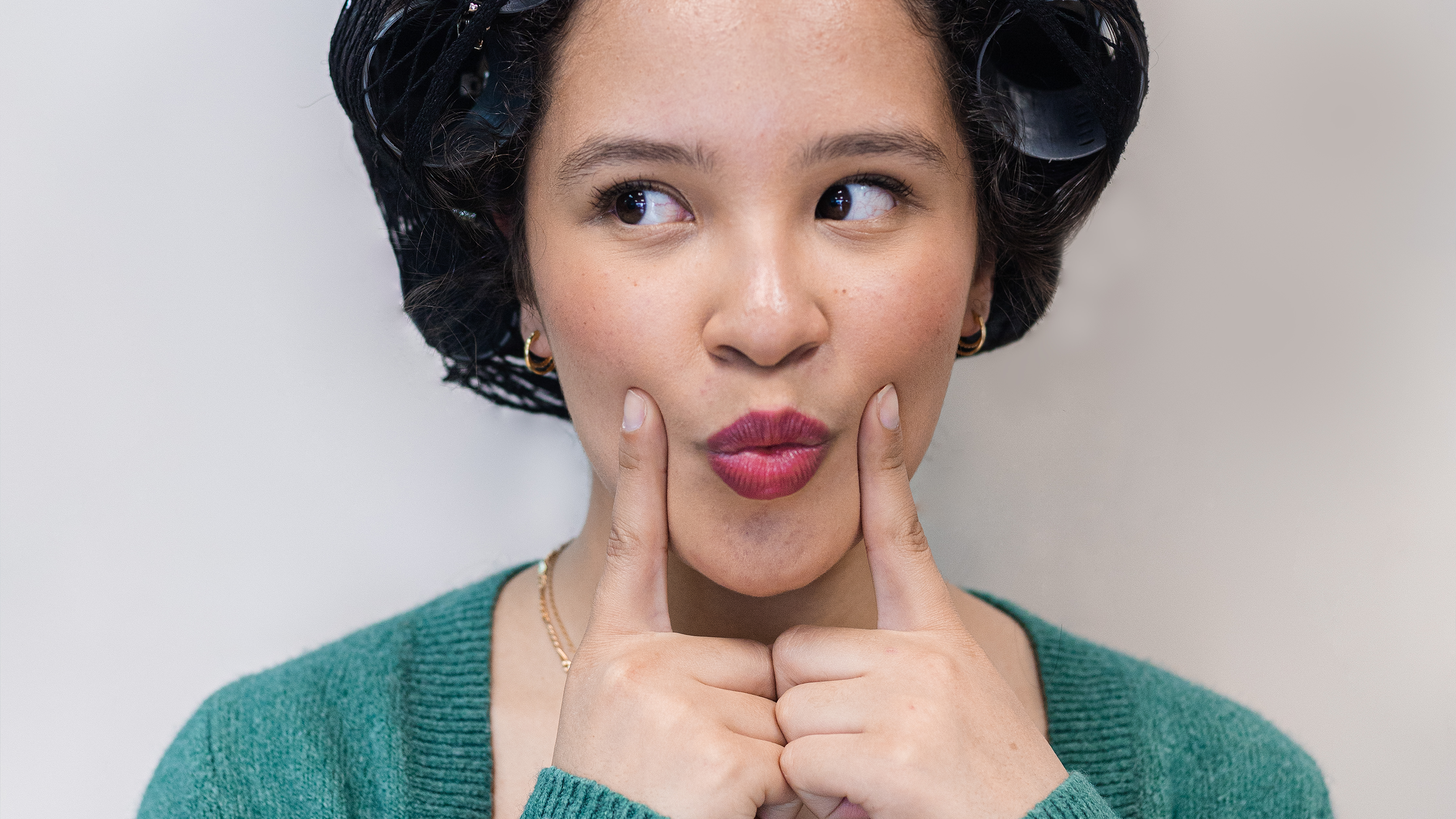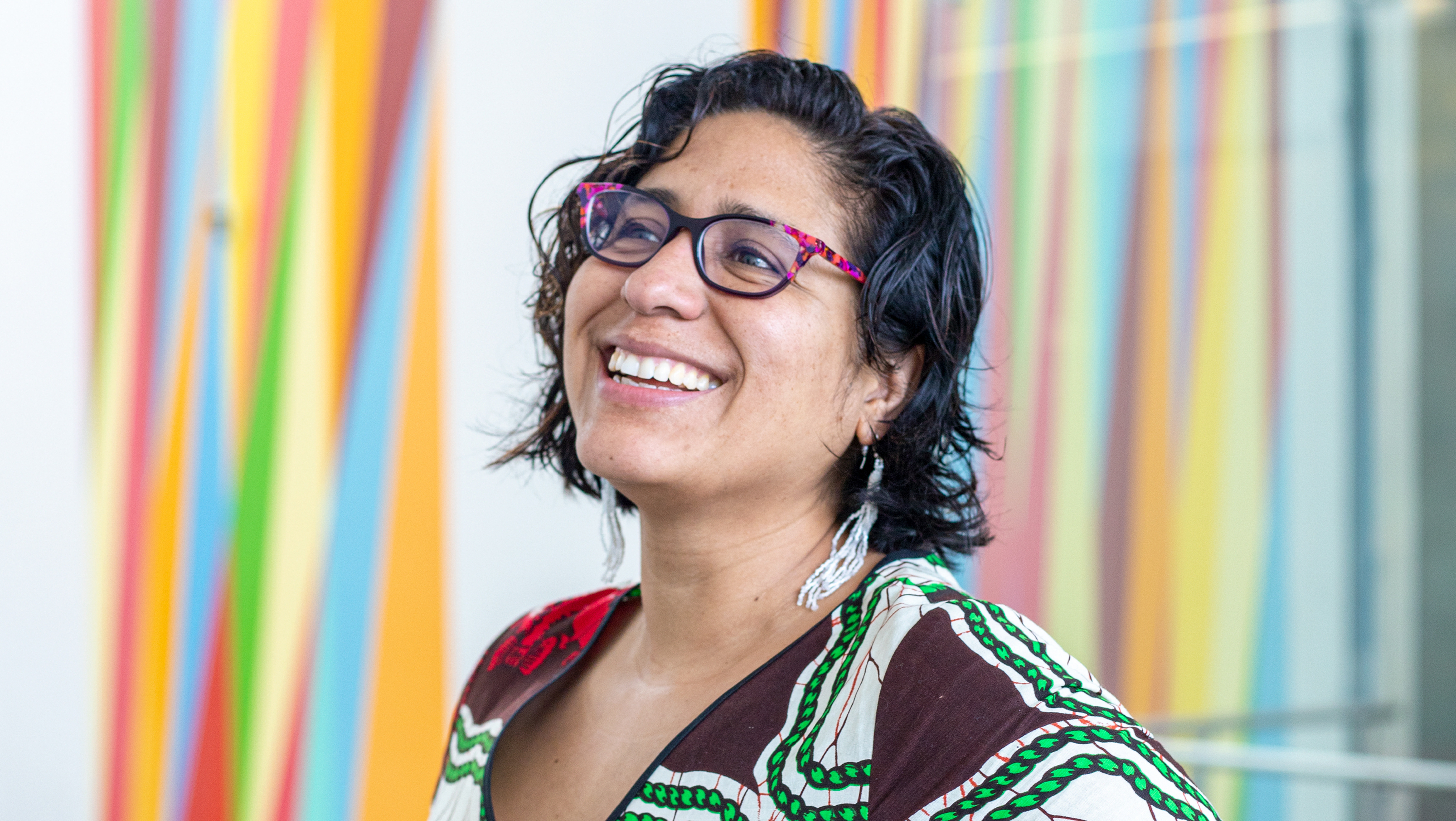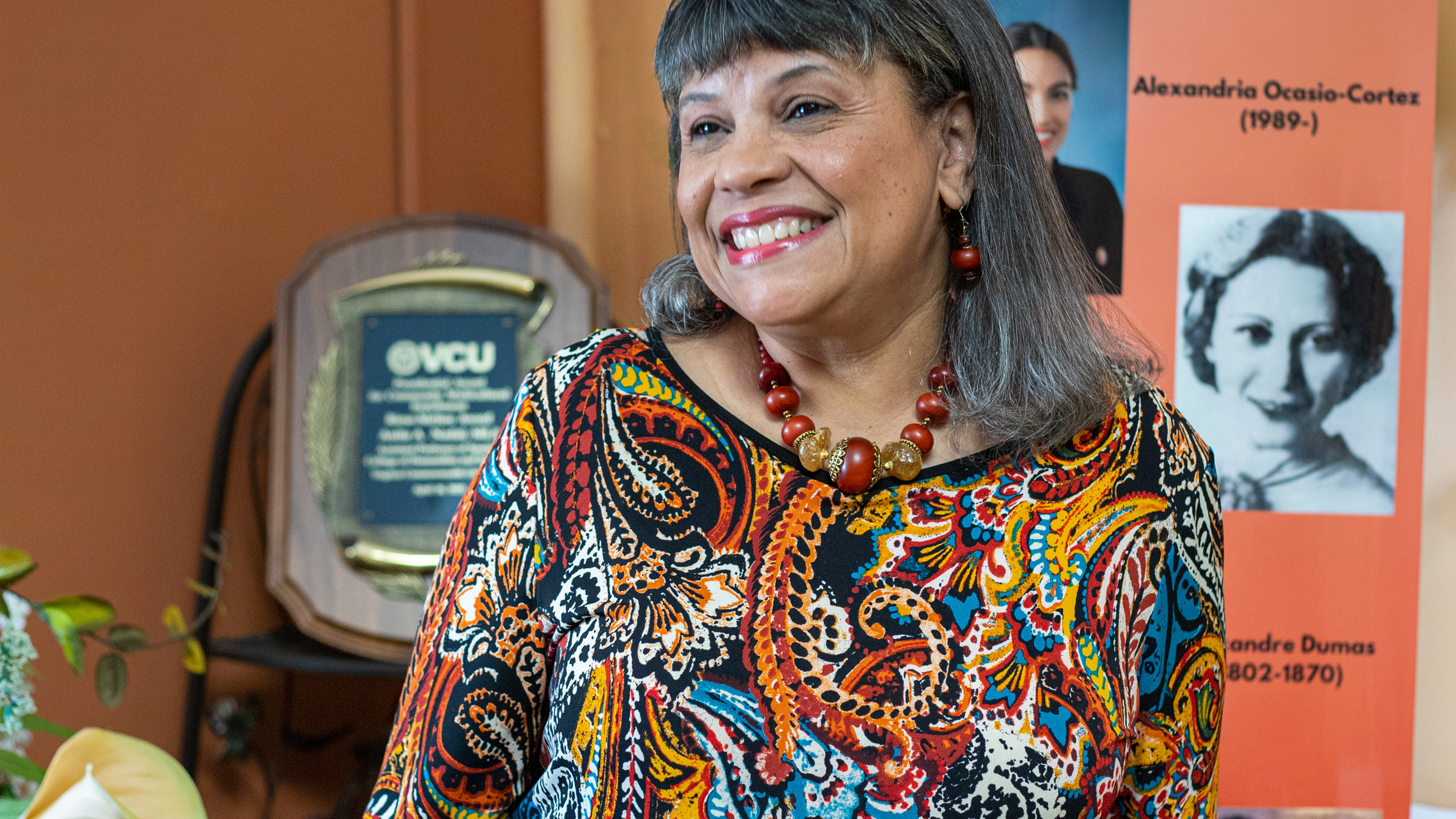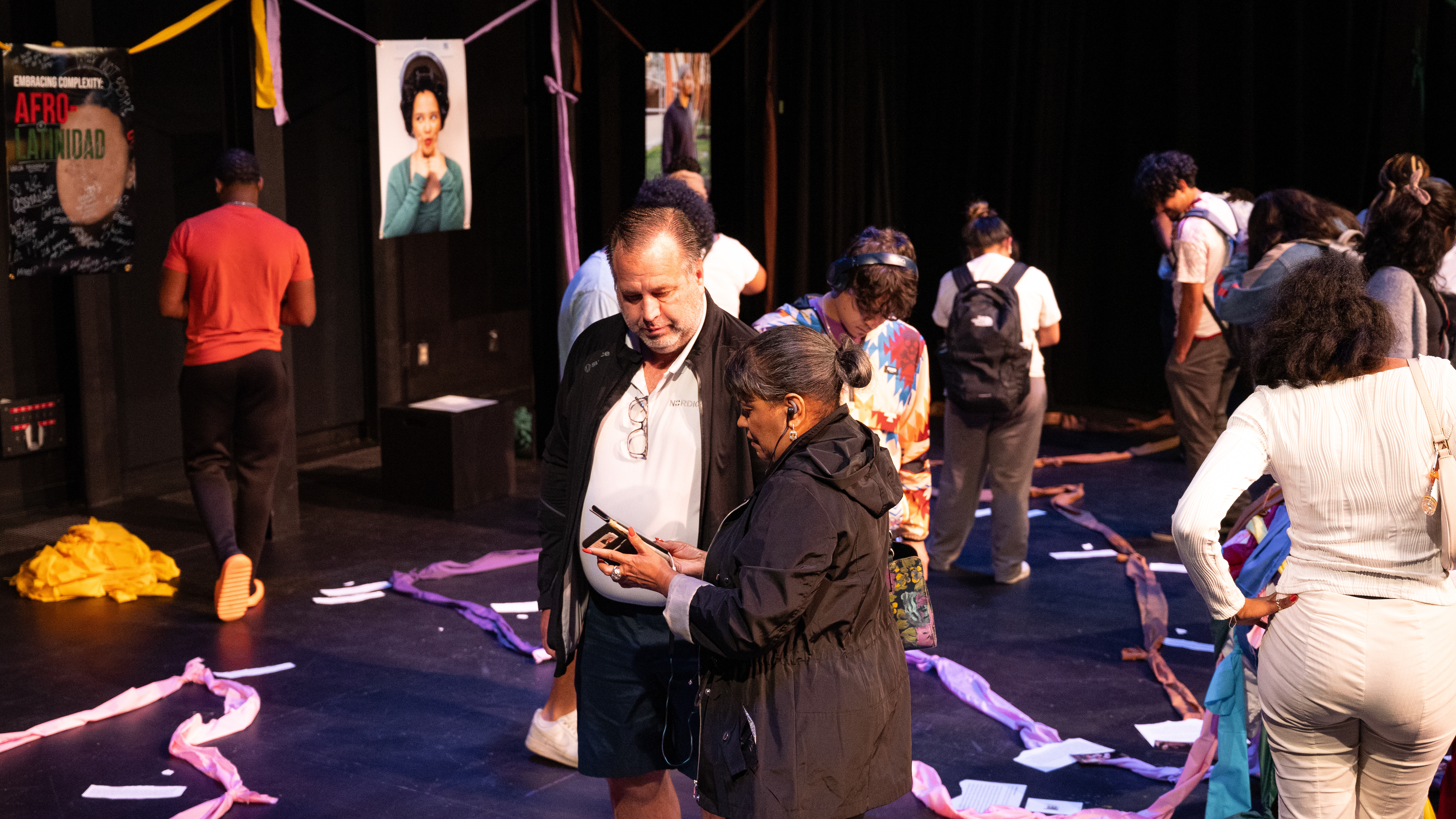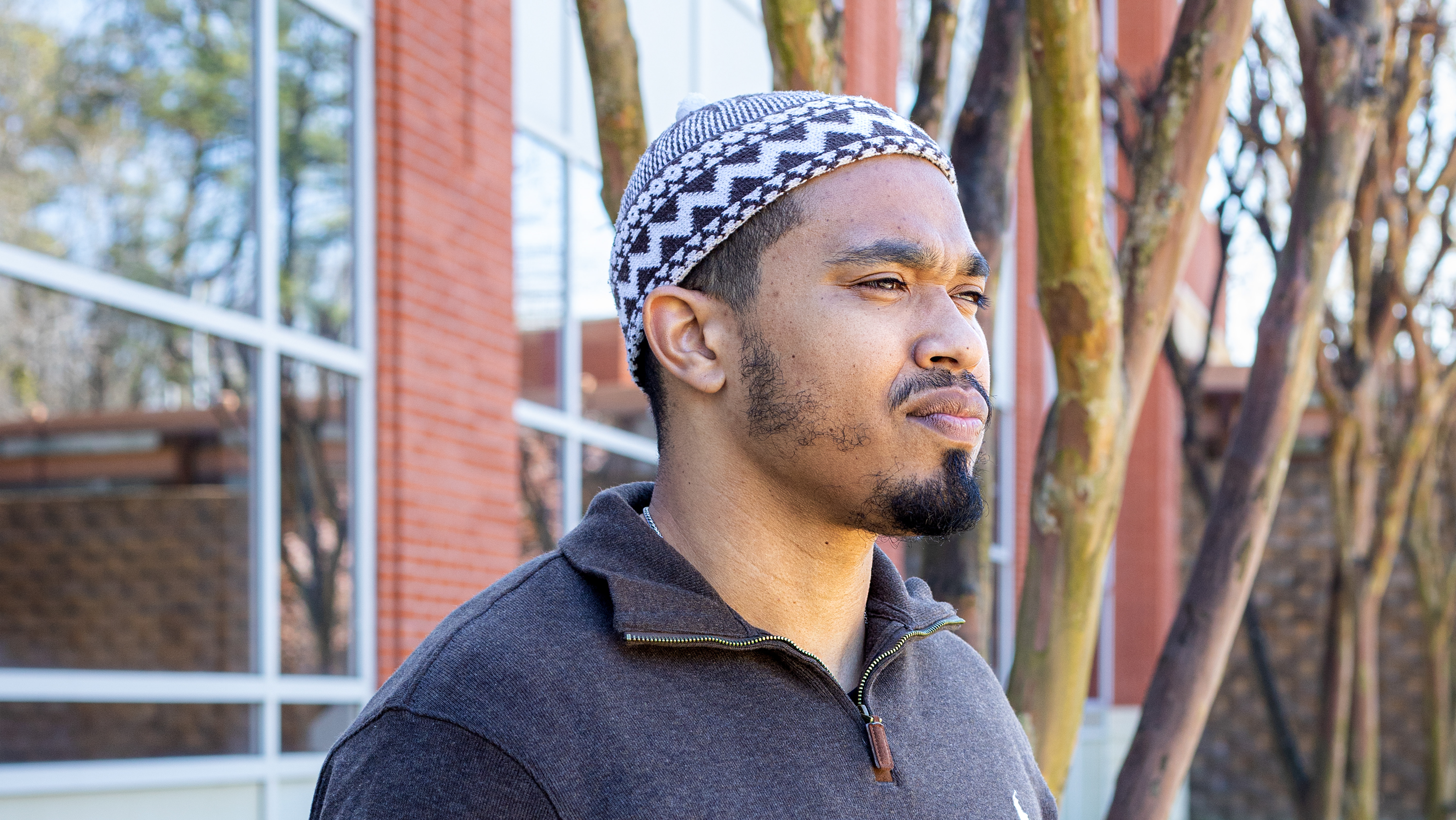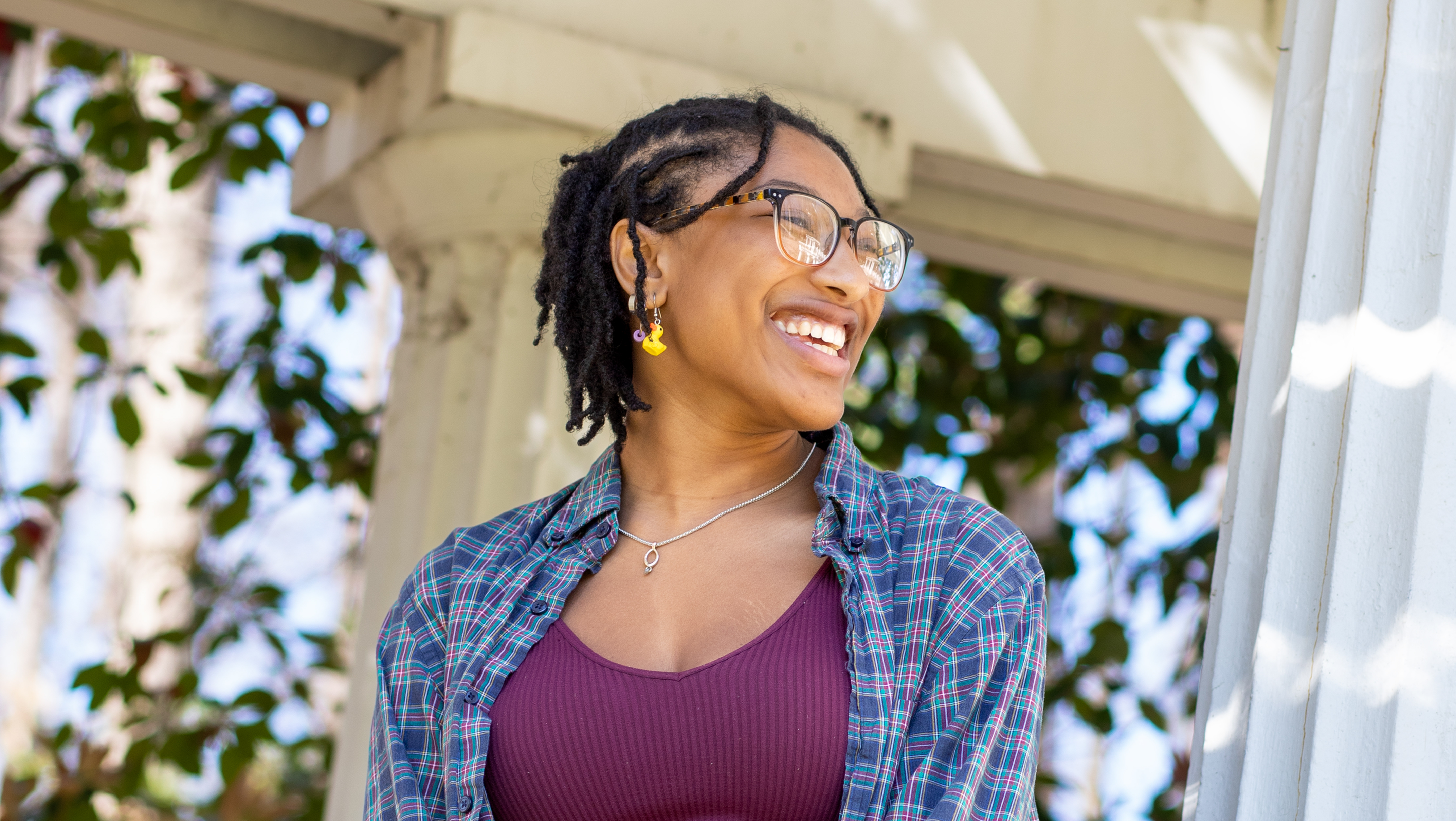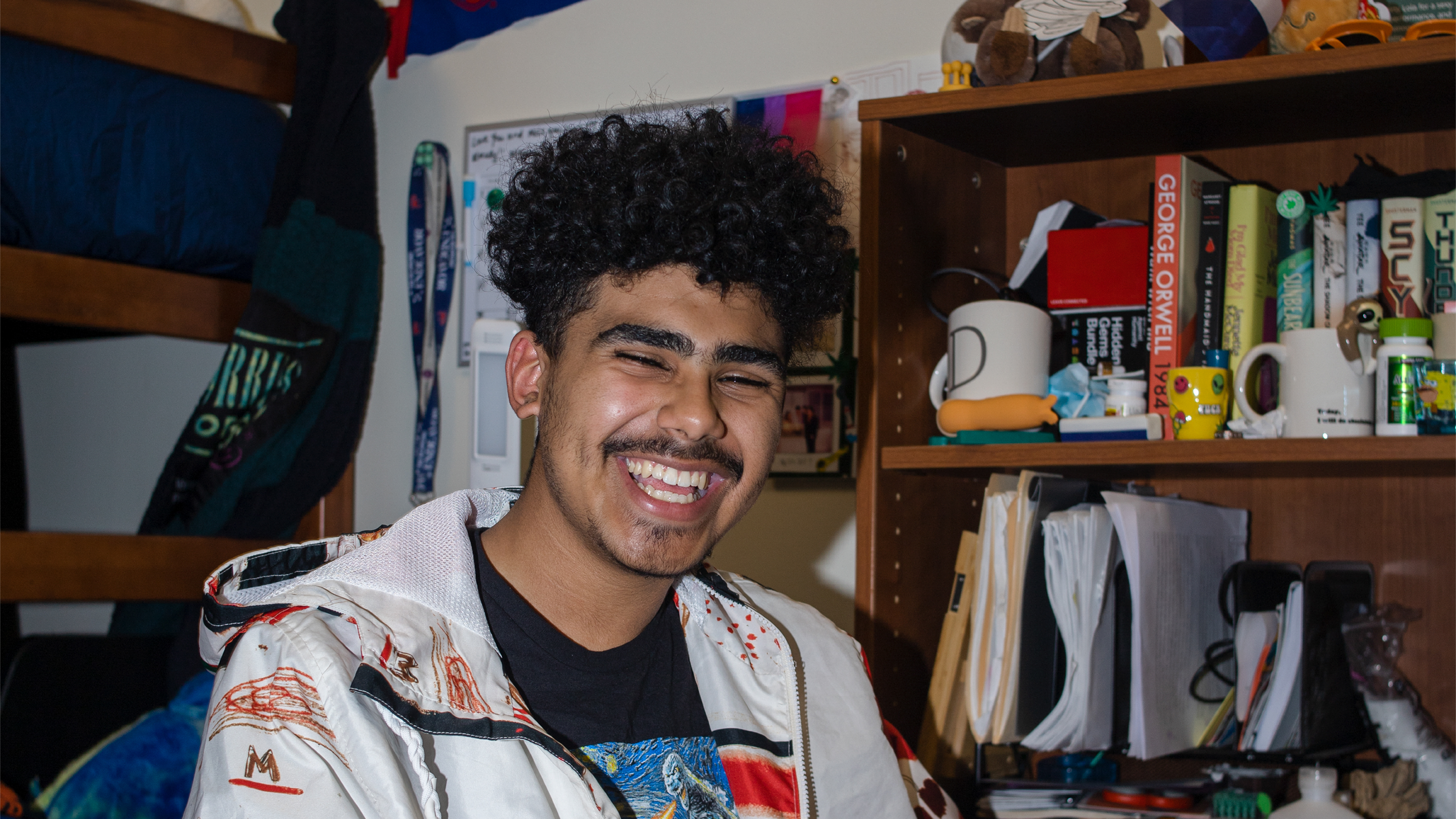McKenna Dunbar at Hollywood Cemetery, a space she a space that she finds serenity and contemplates the future.
Audio #1 (3:19 min)
I'm from Maryland and was raised in Fort Washington, Maryland. I went to an international bilingual school until sixth grade because my mom wanted me to be fluent in Spanish… I'm really grateful that she felt as though it was important enough for me to like know the language even though she didn't know the language...
Then I went to a predominantly white, elitist, all-girl middle school and upper school in Washington DC in Northwest DC. There were only six black women in a class of 93 people and no one viewed me as Hispanic. The issue of colorism is so prevalent in society, whether you're Hispanic or not… I have caramel skin tone, 4C hair, would regularly get braids and I wasn't considered Hispanic, people would always think I was lying… the whole aspect of assimilation was so strong and if you didn't fit into a Eurocentric standard, you weren't gonna be popular or have friends…
Audio #2 ( 1:47 min)
I would say my upbringing was inspired a lot by German parenting style… how much I know about black identity as a whole was due to pan-African beliefs that both of my parents had about the African-American diaspora. Black excellence was always emphasized, I didn't have any Scottish influence or direct like Hispanic influence in the household because my mom got to experience that… I had exposure to my Ethiopian culture through my dad's friends. Overall, I had a great exposure to the Black American experience… if you're not exposed to something frequently versus being exposed to something frequently, you're going to veer into what you're being exposed to frequently at like a much higher like rate, so I would use black to identify myself because that's what most closely like aligned with my identity at the time and it was what I was consistently socialized as…
… when I had my braids, a lot of people didn't consider me Hispanic. As soon as I slapped on my straight wig or after I cut my hair and went bald, Hispanic, mixed, Hispanic, Mixed. Oh you're Latina. Oh you're mixed with white. Now with my bleached bald head, it's been just black.
I am also indigenous… Cherokee from my mom and Algonquin from my father, my great-grandfather is full Algonquin… but I was in a conversation recently with someone else who's indigenous, who has indigenous background and they don't consider themselves publicly indigenous because there are certain things that come with being indigenous that, in their like perspectives, they can't lay claim to because they didn't grow up in that space…. it's more than just like an identity or a nationality, it's the cultural heritage, an experience, a land connection… So even though such a significant part of me is indigenous, I wouldn't mark those boxes because I don't feel qualified… but that's ripping away my ancestors' identity who worked so hard to bring me here.
Audio #3 (1:05 min)
For myself, I was understanding my Afro-Latinidad as the fact that I come from many different backgrounds, but I consider myself a black person whose cultural heritage was both influenced by the black diaspora. Afro-Latina to me means that I'm black with a Hispanic ancestry… it's more ancestry based definition compared to experience. When I am stating my blackness, I am more so connecting to both how I physically look and my cultural upbringing and then adding my Latino side is more so recognizing my ancestry.
I feel more confident that I have the language to identify myself, which I think is affirming… It's weird because I don't necessarily like labels or compartmentalizing my identities.
